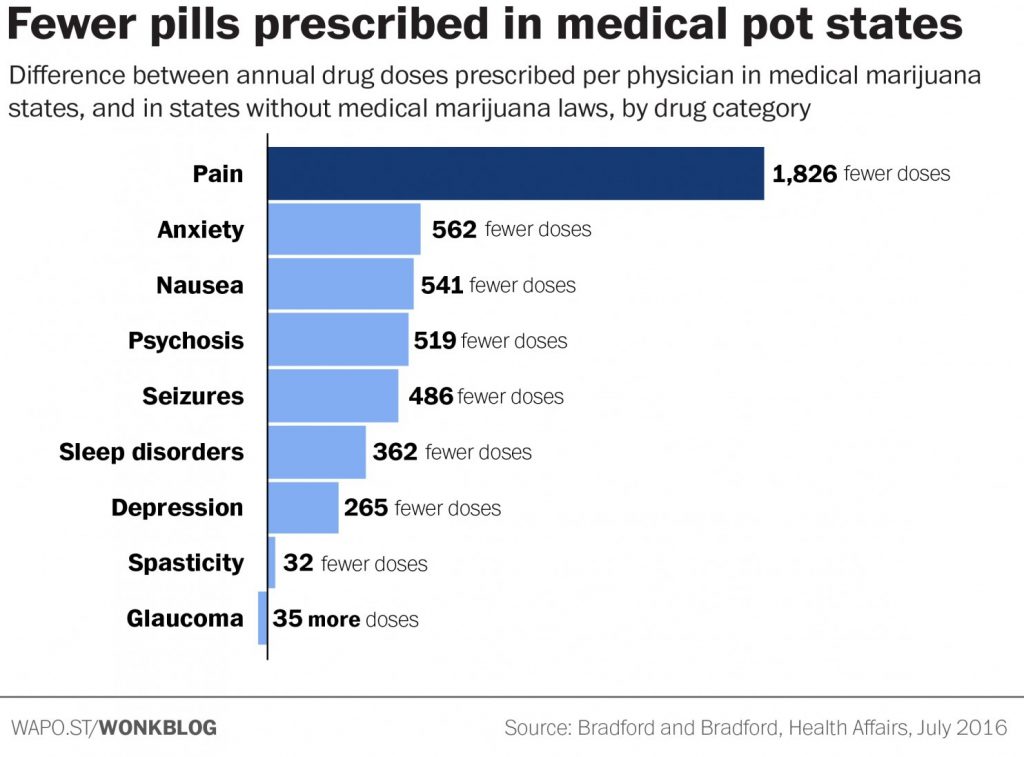Authored By: Craig Brand
World Governments, exempting our own Federal Government, recognize that legalizing cannabis not only greatly minimizes poor quality cannabis in the hands of gangs, cartels and illegal pushers, but also provides the Federal and Local governments with money; lots and lots of money. Those within the industry, directly or indirectly, are provided with jobs and earning abilities that again creates more tax dollars. All of that empty commercial real estate plaguing our country now gets swallowed up, energizing real estate space once again. Our elected officials have created no other formula for disposing of our gluttony of unwanted commercial and warehouse space. Our country has produced no other industry of noteworthiness to combat the present job shortage.
So, what is the problem?
With the job market shrinking at the fastest pace since the American Industrial Revolution, 100-year-old shopping establishments going out of business, our politicians have not been able to answer our concerns regarding technology and robotics putting the American work force out of business faster then the entirety of the illegal immigrant work force. Regardless of the immigrant workforce, technology is going to destroy the bulk of the U.S. job and labor market; politicians blaming a race of people trying to survive is the equivalent of “Reefer Madness” and it is false propaganda all over.
While these same good-old-boy government employees preach that cannabis is bad; ignoring all of the recent medical science as well as the testimony of the majority of the people (proof that democracy isn’t in the hands of the population), they go home or to their parties with a drink in hand. Really? Hard liquor is ok, but first quality Mother Nature is not?
Mr. Government Employee, you forget your history; during the alcohol prohibition error, cannabis was not only legal but the vice of choice. Cannabis wasn’t made illegal until three years after the end of prohibition. It was illegalized not because of the false propaganda spun by powers greater than ourselves, but because hemp competed against Mr. Randolph Hearst’s tree/pulp paper industry, competed against Dow Chemicals and their pulp chemicals, competed against a new product called nylon, and was one of America’s greatest ruse and false propagandas invented in order to save Harry Anslinger’s career.
Anslinger served as the first commissioner of the U.S. Treasury Department‘s Federal Bureau of Narcotics (FBN). He was a starch supporter of alcohol prohibition. Prior to the end of alcohol prohibition, he claimed that cannabis was not a problem, did not harm people, and “there is no more absurd fallacy” than the idea it makes people violent. Yet, when his career was on the line as alcohol probation was ending, his rhetoric changed as with all great politicians. His critics argue he shifted not due to objective evidence but self-interest due to the obsolescence of the Department of Prohibition he headed when alcohol prohibition ceased; campaigning for a new Prohibition against its use and thus the need for his Federal Department and pay check to continue. (It’s what keeps our country so great!)
Government Protecting Big Pharma & Contributions?

Source: http://www.thecannabist.co/2016/07/14/medical-marijuana-pharma-fight/58396/
Research and the Government’s own data demonstrate that painkiller abuses and overdoses are lower in states with medical marijuana laws. MMJ patients are increasingly choosing pot over powerful and deadly prescription narcotics. (Christopher Ingraham, The Washington Post)
Published in “the journal Health Affairs, Ashley and W. David Bradford, researchers from the University of Georgia, scoured the database of all prescription drugs paid for under Medicare Part D from 2010 to 2013. They found that, in the 17 states with a medical-marijuana law in place by 2013, prescriptions for painkillers and other classes of drugs fell sharply compared with states that did not have a medical-marijuana law.
The drops were quite significant: in medical-marijuana states, the average doctor prescribed 265 fewer doses of antidepressants each year, 486 fewer doses of seizure medication, 541 fewer anti-nausea doses and 562 fewer doses of anti-anxiety medication. But most strikingly, the typical physician in a medical-marijuana state prescribed 1,826 fewer doses of painkillers in a given year”.
So why do these all powerful pharmaceutical companies need government protection? The number of painkiller prescriptions, in medical marijuana states, are tanking. The above chart published in The Cannabist illustrates why pharmaceutical companies are fighting legal cannabis.
Pharmaceutical companies have long been at the forefront of opposition to marijuana reform, funding research by anti-pot academics and funneling dollars to groups, such as the Community Anti-Drug Coalitions of America, that oppose marijuana legalization. Source The Cannabist
Pharmaceutical companies have also lobbied federal agencies directly to prevent the liberalization of marijuana laws. In one case, recently uncovered by the office of Sen. Kirsten Gillibrand (D-N.Y.), the Department of Health and Human Services recommended that naturally derived THC, the main psychoactive component of marijuana, be moved from Schedule 1 to Schedule 3 of the Controlled Substances Act, a less restrictive category that would acknowledge the drug’s medical use and make it easier to research and prescribe. Several months after HHS submitted its recommendation, at least one drug company that manufactures a synthetic version of THC, which would presumably have to compete with any natural derivatives , wrote to the Drug Enforcement Administration to express opposition to rescheduling natural THC, citing “the abuse potential in terms of the need to grow and cultivate substantial crops of marijuana in the United States.” The DEA ultimately rejected the HHS recommendation without explanation. Source The Cannabist
Government More Interested in Helping Big Pharma’s Continued Support Than The Tax Payer’s Hard Earned Money
In the same Cannabist article, the Bradfords data revealed that in just 17 MMJ states the pharmaceutical prescription reduction was saving the Federal Medicare Program, hence the U.S. tax payer, more than $165 Million Dollars in 2013, alone. The Bradfords report calculated that “the estimated annual Medicare prescription savings would be nearly half a billion dollars if all 50 states were to implement similar programs”.
A new study shows that MMJ Rxs could save the Medicaid program, (different than the Federal Medicare program), $1 billion on prescription drug costs if it were legal nationwide. This study comes as the Trump administration and his Southern Baptist, Attorney General Jeff Sessions is gearing up against the legalization of cannabis. Mr. Sessions states “that the benefits of medical marijuana are overhyped”.
New Study Says Medical Cannabis Could Save Medicaid (USA) $1Billion, 20 April 2017, The Washington Examiner. Full report http://www.washingtonexaminer.com/medical-marijuana-could-save-1-billionfor-medicaid-study-shows/article/2620711.
“We are returning to the enforcement of the laws as passed by Congress, plain and simple,” Sessions said during a speech on Friday. “If you are a drug trafficker, we will not look the other way, we will not be willfully blind to your misconduct.”
Sessions has condemned cannabis users in particular throughout his political career, having said as recently as 2016 that “good people don’t smoke marijuana.” “In a two-page memo to federal prosecutors across the country, Sessions overturned former attorney general Eric H. Holder’s sweeping criminal charging policy that instructed his prosecutors to avoid charging certain defendants with offenses that would trigger long mandatory minimum sentences. In its place, Sessions told his more than 5,000 assistant U.S. attorneys to charge defendants with the most serious crimes, carrying the toughest penalties”.
Is Jeff Sessions the New Harry Ansliger?
Law enforcement officials say that Sessions is preparing a plan to prosecute more drug cases and pursue mandatory minimum sentences. He is eager to bring back the national crime strategy of the 1980s and ’90s, an approach which has fallen out of favor and proven ineffective.
“They are throwing decades of improved techniques and technologies out the window in favor of a failed approach,” said Kevin Ring, president of Families Against Mandatory Minimums (FAMM).
Source National Security: National Security, How Jeff Sessions wants to bring back the war on drugs, by Sari Horwitz April 8, 2017.
Harry Anslinger successfully utilized his “war on drugs” scare tactic rhetoric for an unprecedented 32 years. His techniques, coupled with the influence of powerful business tycoons, such as the self serving interest of Randolph Hearst, made him the longest serving commissioner of the U.S. Treasury Department’s Federal Bureau of Narcotics (FBN).
Just like Ansliger, prior to his new appointment, Sessions was not an advocate against personal use of cannabis. Drug trafficking, yes. However, with politics comes a stance and Sessions, just like Anslinger has chosen a crusade of hard reform in spite of all of the scientific evidence that had existed even at the time of Anslinger.
With more than 70% of the United States in favor of cannabis use, with the proven statistics demonstrating that “the people” would prefer their use of cannabis over pharmaceutical pills and hard alcohol, the cannabis industry is not going away.
It didn’t go away during the Reagan/Bush error and it wont go away now, not even with this administration, as Congress and the country simply know better.
So what will happen?
Sessions probably will begin setting examples for his war on drugs, starting with the California black/gray market. He will make his point, but he wont make any friends and neither will the current administration. After the arrests, I’m not sure the Feds would find a jury willing to convict, especially in California where the current market has been part of everyone’s daily life for about as long as the age of the average juror.
The Cannabis trade will go underground once again and the U.S. and it’s States and their municipalities will lose all of the tax revenue to be gained and Medicare/Medicaid to be saved. Technology doesn’t just work for law enforcement as today’s growing methods and equipment run in favor of an industry that if it had to hide, it could. Mr. Sessions not only will be driving one of the only thriving and blossoming industries in our country afoul, but he will lose sight to the other gains the legalized industry has installed. Product regulation, product quality, product safety, product controls. Mr. Sessions, drug dealers do not ask for and record medical cards or driver’s licenses and sales.
As the country’s citizenry supports cannabis use, whether as a medicine or their personal vice, isn’t it better to work for the people, by the people, with the people then against the people?
Just asking……






